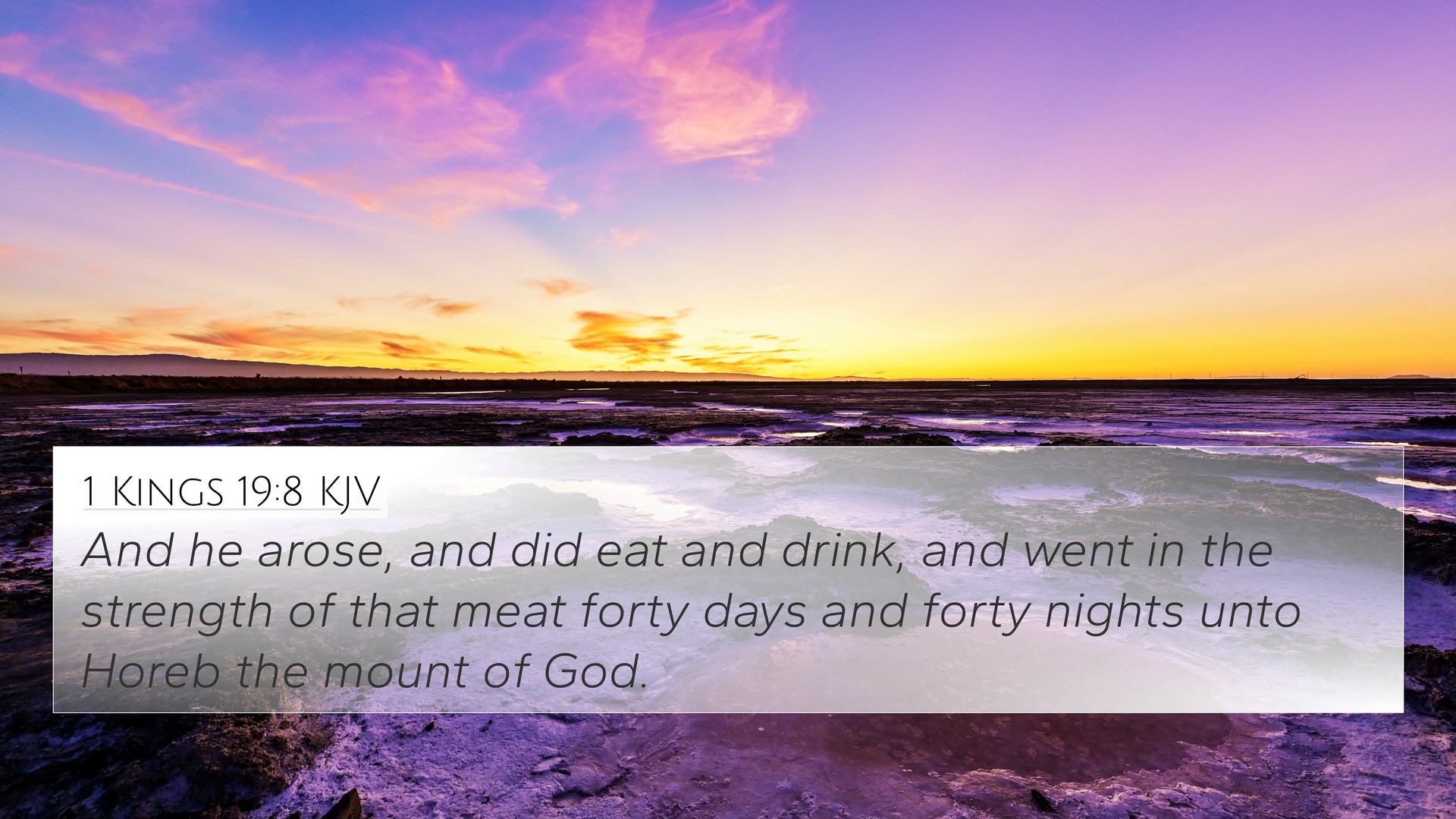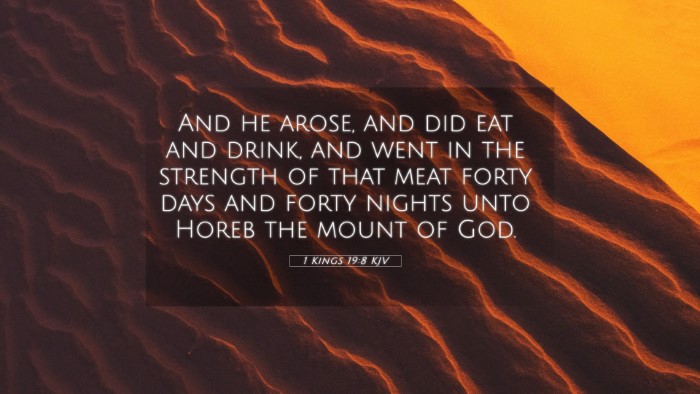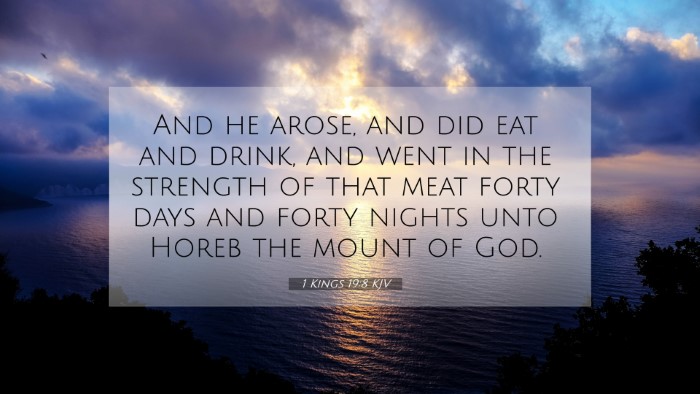Old Testament
Genesis Exodus Leviticus Numbers Deuteronomy Joshua Judges Ruth 1 Samuel 2 Samuel 1 Kings 2 Kings 1 Chronicles 2 Chronicles Ezra Nehemiah Esther Job Psalms Proverbs Ecclesiastes Song of Solomon Isaiah Jeremiah Lamentations Ezekiel Daniel Hosea Joel Amos Obadiah Jonah Micah Nahum Habakkuk Zephaniah Haggai Zechariah Malachi1 Kings 19:8 Similar Verses
1 Kings 19:8 Cross References
And he arose, and did eat and drink, and went in the strength of that meat forty days and forty nights unto Horeb the mount of God.
Uncover the Rich Themes and Topics of This Bible Verse
Listed below are the Bible themes associated with 1 Kings 19:8. We invite you to explore each theme to gain deeper insights into the Scriptures.
1 Kings 19:8 Cross Reference Verses
This section features a detailed cross-reference designed to enrich your understanding of the Scriptures. Below, you will find carefully selected verses that echo the themes and teachings related to 1 Kings 19:8 KJV. Click on any image to explore detailed analyses of related Bible verses and uncover deeper theological insights.

Exodus 34:28 (KJV) »
And he was there with the LORD forty days and forty nights; he did neither eat bread, nor drink water. And he wrote upon the tables the words of the covenant, the ten commandments.
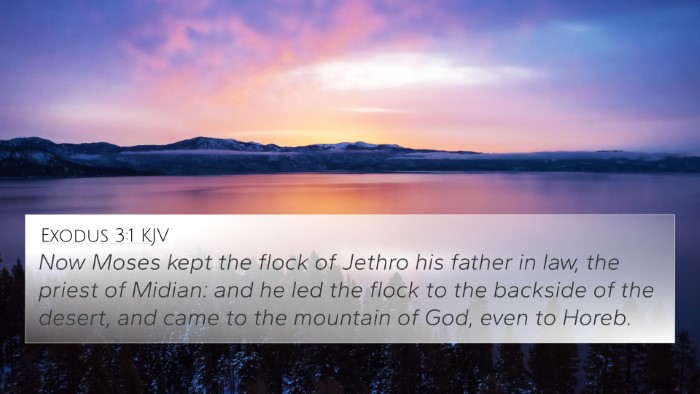
Exodus 3:1 (KJV) »
Now Moses kept the flock of Jethro his father in law, the priest of Midian: and he led the flock to the backside of the desert, and came to the mountain of God, even to Horeb.
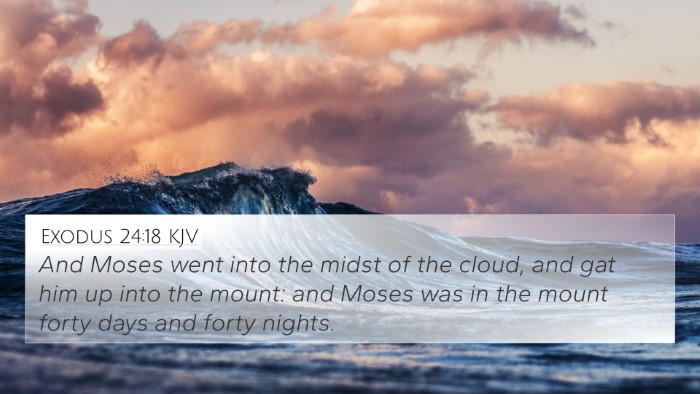
Exodus 24:18 (KJV) »
And Moses went into the midst of the cloud, and gat him up into the mount: and Moses was in the mount forty days and forty nights.
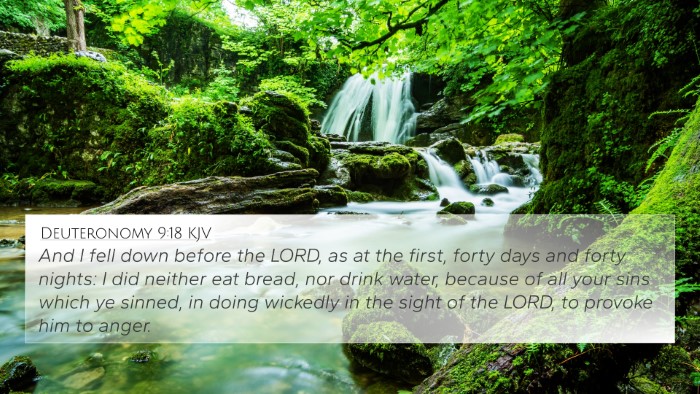
Deuteronomy 9:18 (KJV) »
And I fell down before the LORD, as at the first, forty days and forty nights: I did neither eat bread, nor drink water, because of all your sins which ye sinned, in doing wickedly in the sight of the LORD, to provoke him to anger.
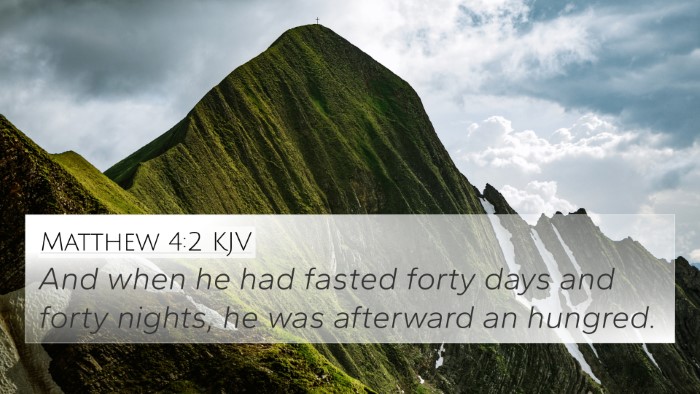
Matthew 4:2 (KJV) »
And when he had fasted forty days and forty nights, he was afterward an hungred.
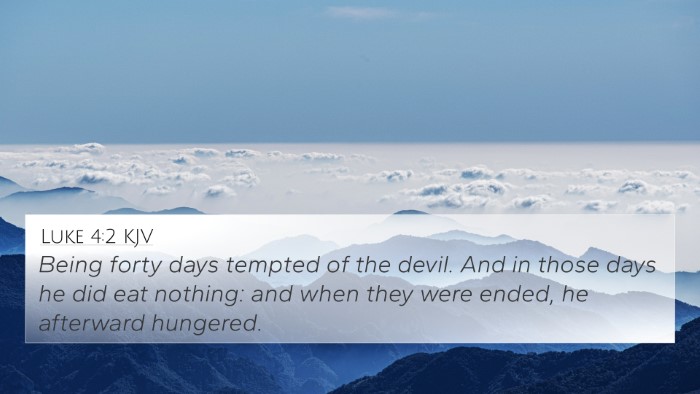
Luke 4:2 (KJV) »
Being forty days tempted of the devil. And in those days he did eat nothing: and when they were ended, he afterward hungered.
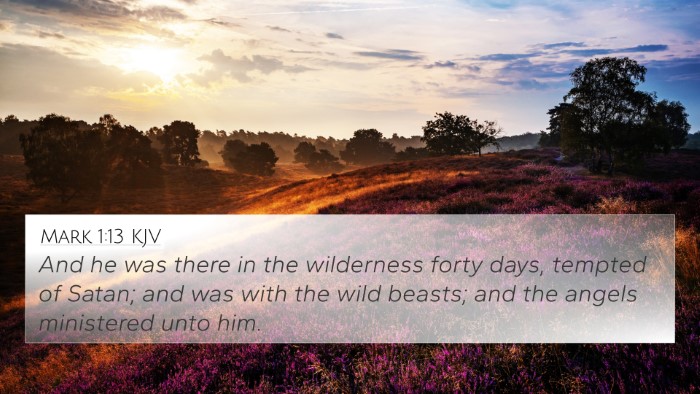
Mark 1:13 (KJV) »
And he was there in the wilderness forty days, tempted of Satan; and was with the wild beasts; and the angels ministered unto him.
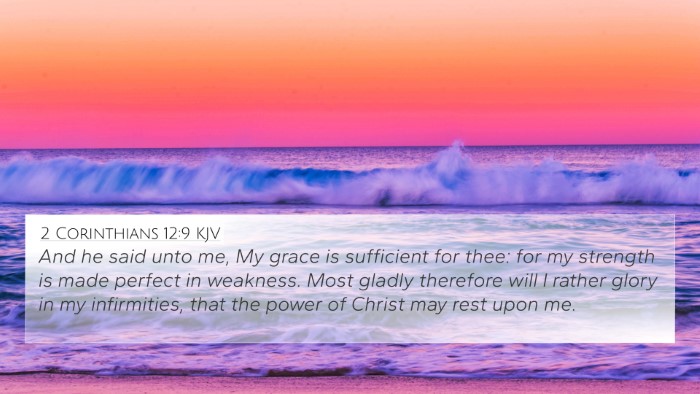
2 Corinthians 12:9 (KJV) »
And he said unto me, My grace is sufficient for thee: for my strength is made perfect in weakness. Most gladly therefore will I rather glory in my infirmities, that the power of Christ may rest upon me.
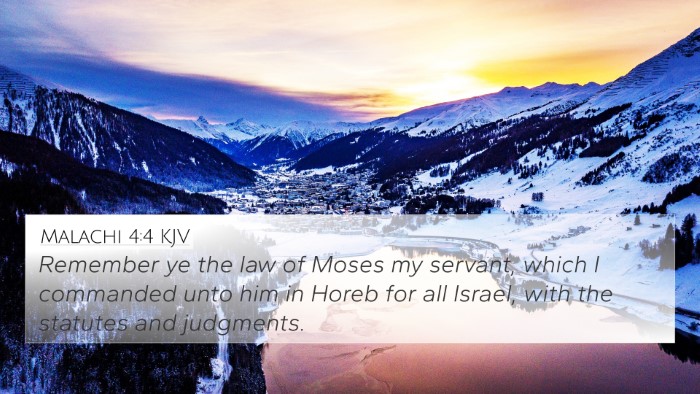
Malachi 4:4 (KJV) »
Remember ye the law of Moses my servant, which I commanded unto him in Horeb for all Israel, with the statutes and judgments.
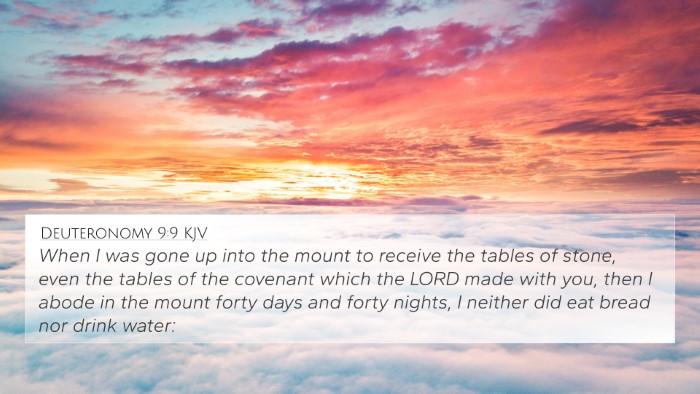
Deuteronomy 9:9 (KJV) »
When I was gone up into the mount to receive the tables of stone, even the tables of the covenant which the LORD made with you, then I abode in the mount forty days and forty nights, I neither did eat bread nor drink water:
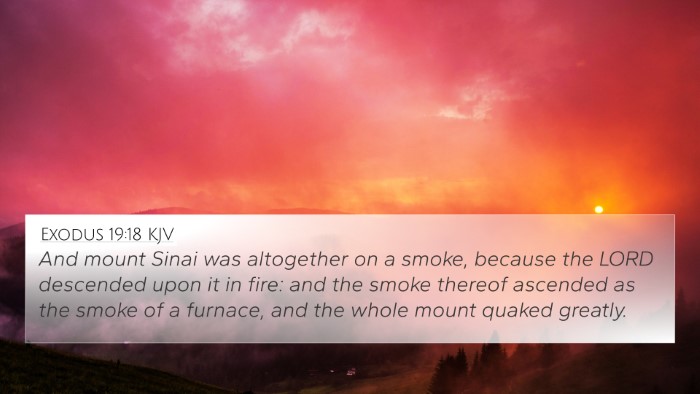
Exodus 19:18 (KJV) »
And mount Sinai was altogether on a smoke, because the LORD descended upon it in fire: and the smoke thereof ascended as the smoke of a furnace, and the whole mount quaked greatly.
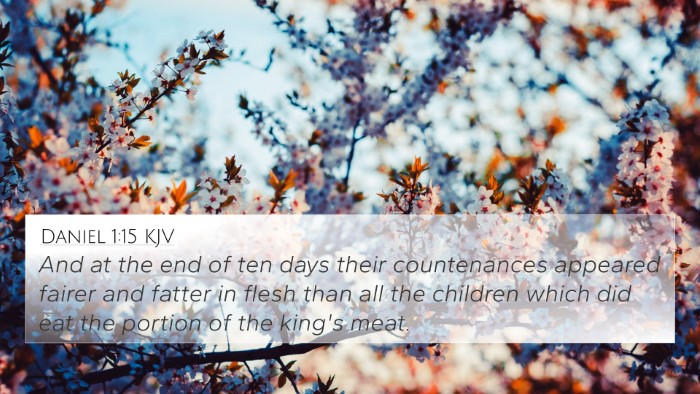
Daniel 1:15 (KJV) »
And at the end of ten days their countenances appeared fairer and fatter in flesh than all the children which did eat the portion of the king's meat.
1 Kings 19:8 Verse Analysis and Similar Verses
Understanding 1 Kings 19:8
Verse: 1 Kings 19:8 - “So he arose, and did eat and drink, and went in the strength of that meat forty days and forty nights unto Horeb the mount of God.”
This verse highlights the divine provision God made for Elijah as he fled from Jezebel. It marks both a physical and spiritual journey for Elijah, showcasing the sustenance that enabled him to travel for an extended period in obedience to God's call.
Verse Meaning and Analysis
This passage reveals significant insights regarding God's provision and the strength derived from spiritual sustenance. Below, we analyze its meaning through the perspectives offered by various commentaries:
Matthew Henry's Commentary
Henry emphasizes the mercy of God towards Elijah during a time of fear and disappointment. He notes that God did not rebuke Elijah for his shortcomings, but instead provided food and rest. This shows God's compassion and understanding of human frailty.
Key Insights:
- The importance of physical needs being met before spiritual endeavors.
- God's gentle provision as a means of encouragement and strength for His servants.
- The forty days and nights evoke imagery of significant biblical events, underscoring a journey not just of distance but of spiritual significance.
Albert Barnes' Notes on the Bible
Barnes points out that Elijah's journey was sustained by the food provided by the angel of the Lord, symbolizing the spiritual nourishment provided through God's Word. The “forty days” mirrors the journey of Moses and the Israelites, illustrating a pattern of seeking God in the wilderness.
Key Insights:
- The parallels drawn between Elijah's experience and the journeys of Moses and Israel.
- The notion of Horeb (Sinai) as a sacred space, where divine encounters occur, indicating a profound transition for Elijah.
- The message that believers can find strength in spiritual sustenance provided by God, especially in difficult times.
Adam Clarke's Commentary
Clarke discusses the specifics of the journey undertaken by Elijah and how the nourishment he received empowered him to fulfill God's purposes. He highlights the significance of Horeb as a site of divine revelation, suggesting Elijah was led there for further instruction from God.
Key Insights:
- The angelic provision emphasizes God's direct intervention in human affairs.
- Clarke notes that the length of the journey reflects not just physical stamina but a deepening spiritual quest.
- Horeb is connected to moments of covenant and revelation, indicating Elijah's journey was leading him toward a divine encounter.
Cross References
This verse connects to several other biblical texts that enhance our understanding:
- Exodus 3:1-6 - The encounter of Moses at Horeb illustrates the sacredness of this location.
- Exodus 34:28 - Moses’ time on the mountain parallels the significance of prolonged time with God.
- 1 Kings 17:6 - God’s provision for Elijah earlier, highlighting God’s continued care.
- Matthew 4:2 - Jesus fasting for forty days, connecting Jesus’s journey to Elijah's experience.
- Luke 9:28-36 - The transfiguration of Jesus at a high mountain mirrors the divine encounters at Horeb.
- Acts 3:21 - The eventual restoration that follows divine encounters with the Almighty.
- James 5:17 - Elijah is highlighted as a righteous man, connecting prayer and divine intervention.
Thematic Connections
The themes in this verse and moment in Elijah’s journey resonate with several concepts throughout scripture:
- Divine Provision: Reflective of God’s provision for His people, encouraging reliance on God.
- Journey and Transformation: Elijah's physical journey symbolizes spiritual transformation, often found in other biblical narratives.
- Encountering God: Many biblical figures experienced transformative moments at significant locations, similar to Elijah’s encounter at Horeb.
Conclusion
1 Kings 19:8 serves as an essential reminder of the grace and strength God offers during times of despair and fatigue. Through Elijah's experience, we see the powerful interplay between physical sustenance and spiritual rejuvenation, echoing throughout the narrative of scripture. The connections to other biblical verses reveal a broader theme of God's faithfulness and presence in the lives of His followers.
